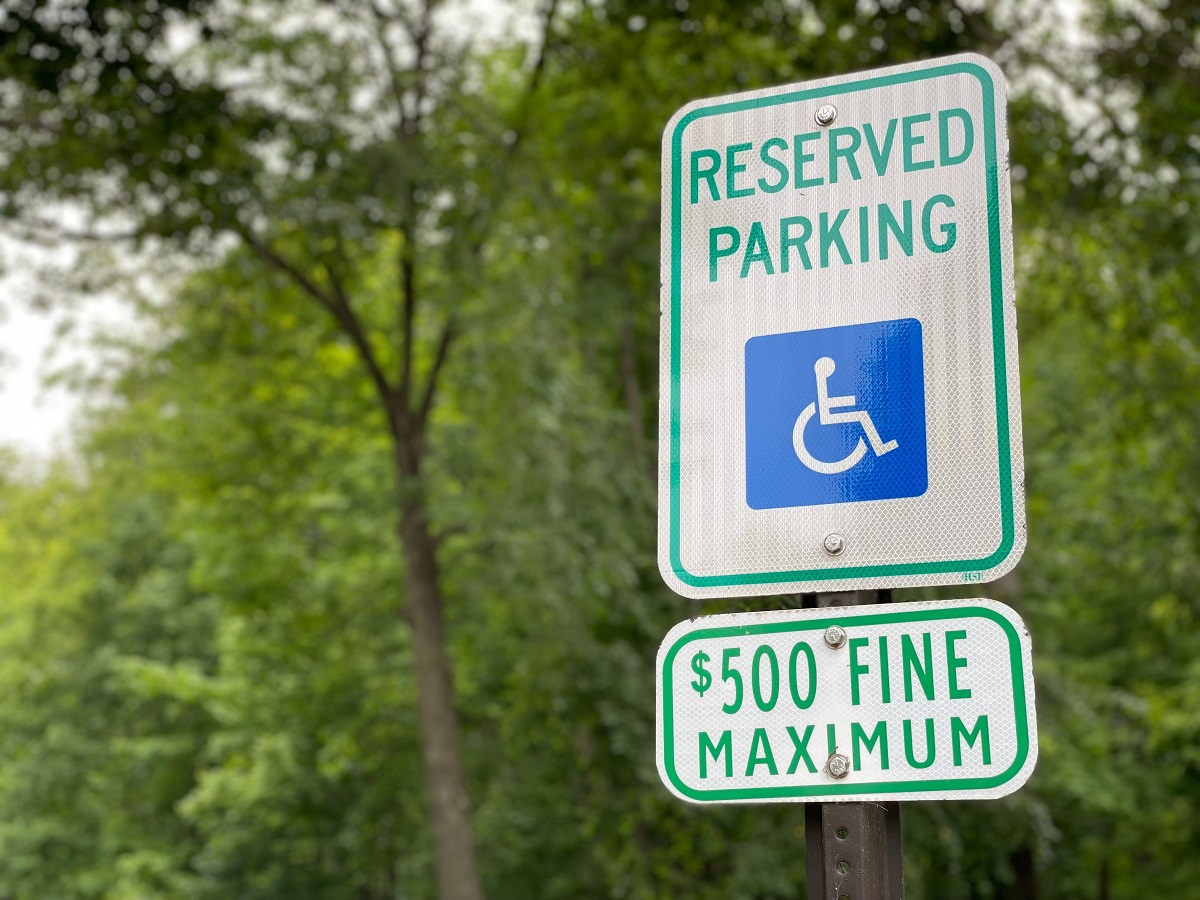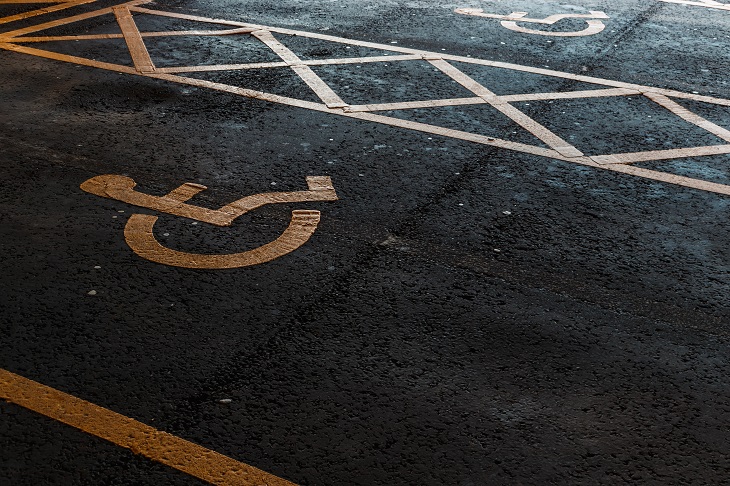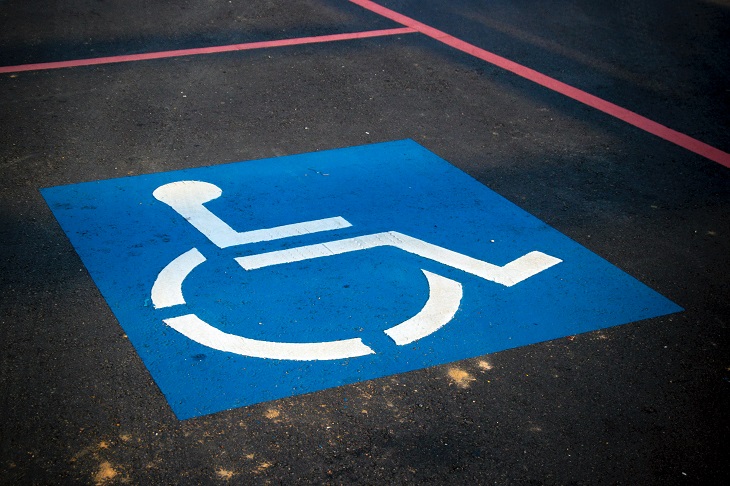Understanding Handicap Parking Laws in the United States: A Comprehensive Guide

Handicap parking laws in the United States are designed to ensure that individuals with disabilities have access to parking spaces that accommodate their needs. These laws are crucial for ensuring equal access to public spaces and facilities for people with disabilities.
In this comprehensive guide, we will delve into the details of handicap parking laws in the United States, covering everything from who qualifies for a handicap parking permit to the requirements for parking spaces and the consequences of parking illegally in these designated spots. Whether you’re looking for more information on California handicap parking regulations, Massachusetts handicap parking eligibility, or Colorado handicap parking penalties, we’ve got all states and topics covered!
Who Qualifies for a Handicap Parking Permit?
To park in designated handicap parking spaces, individuals must possess a handicap parking permit. These permits are issued to people who have documented disabilities that affect their mobility. The specific requirements for obtaining a handicap parking permit may vary from state to state – Illinois handicap parking requirements may be different to Florida handicap parking laws, for example. Generally, however, individuals with the following conditions or requirements are eligible:
Mobility Impairments
This includes people who have difficulty walking due to conditions such as arthritis, muscular dystrophy, or neurological disorders.
Mobility Aids
People who use wheelchairs, walkers, crutches, or other mobility aids to move around are eligible for handicap parking permits.
Respiratory Conditions
Some states grant handicap parking permits to individuals with severe respiratory conditions that limit their ability to walk long distances.
Visual Impairments
In certain states, individuals who are legally blind may qualify for a handicap parking permit.
Cardiovascular Conditions
Heart conditions that significantly affect a person’s ability to walk long distances may also make them eligible for a handicap parking permit.
Temporary Disabilities
Some states issue temporary handicap parking permits for individuals who have a temporary disability that impairs their mobility. These permits are typically valid for a limited period, such as six months.
Again, it’s important to note that the eligibility criteria and application process for handicap parking permits can vary widely from state to state. The Minnesota handicap parking application process will be different from Texas handicap parking permit application and so on, so be sure to check with your local authorities to see whether you’re eligible.

Understanding Handicap Parking Spaces
Handicap parking spaces are specially designated parking spots reserved for individuals with disabilities. These spaces are strategically placed near building entrances and other facilities to ensure that people with disabilities can access them easily. Here are some key features of handicap parking spaces:
Accessible Location
Handicap parking spaces are typically located close to building entrances, making it more convenient for individuals with disabilities to access businesses and public facilities.
Designated Markings
These parking spaces are marked with the International Symbol of Accessibility, a white icon of a person in a wheelchair on a blue background. This symbol indicates that the parking space is reserved for individuals with disabilities, and it’s the same throughout the country – from Georgia handicap parking signs to Wisconsin handicap parking signage, it’ll all look pretty much the same!
Wider Spaces
Handicap parking spaces are typically wider than standard parking spaces to accommodate mobility aids such as wheelchairs and walkers.
Access Aisle
Next to each handicap parking space, there is an access aisle marked with diagonal stripes. This space is essential for allowing individuals with disabilities to transfer from their vehicle to a wheelchair or other mobility aid.
Ramps and Curb Cuts
Nearby ramps and curb cuts provide individuals with disabilities easier access to sidewalks and building entrances.
Minimum Number of Spaces
The Americans with Disabilities Act (ADA) sets guidelines for the minimum number of handicap parking spaces required in different types of parking lots. The number of spaces depends on the total number of parking spaces available in a lot.
Van-Accessible Spaces
In addition to standard handicap parking spaces, many parking lots also include van-accessible spaces. These are wider to accommodate wheelchair-accessible vans with side-loading ramps.
Parking in a Handicap Space: Rules and Regulations
Parking in a handicap space without the appropriate permit is not only inconsiderate, but illegal. To prevent abuse of these spaces and ensure access for those who need them, strict rules and regulations are enforced. Again, you should be aware of the rules in your area – Oregon handicap parking regulations may not be the exact same as those for North Carolina handicap parking spaces, so do your research to make sure you’re within the law.
Permit Display
If you have a handicap parking permit, it must be clearly displayed in your vehicle when parking in a handicap space. Typically, the permit should be hung from the rearview mirror or placed on the dashboard.
Accessible Vehicle Requirements
When parking in a van-accessible handicap space, you must have a vehicle with a wheelchair lift or ramp. This space is specifically designed to accommodate wheelchair-accessible vans.
Parking Duration
Handicap parking spaces are for short-term parking. You should only park in these spaces while actively loading or unloading a person with a disability or while the person with the disability is entering or exiting the vehicle.
Fines and Penalties
Parking in a handicap space without the appropriate permit can result in hefty fines and penalties. These fines vary by state, but can be several hundred dollars.
Towing
Illegally parked vehicles in handicap spaces can be towed at the owner’s expense.
Civil Rights Violation
Violating handicap parking laws is not just a traffic violation; it’s also considered a civil rights violation because it denies access to individuals with disabilities.
Report Violations
If you come across a vehicle parked in a handicap space without a permit, you can report it to local law enforcement or parking authorities. Many states have dedicated hotlines for reporting violations.
Enforcement and Penalties
Handicap parking laws are enforced to ensure that individuals with disabilities have equal access to public facilities. Enforcement typically falls under the jurisdiction of local law enforcement agencies and parking authorities, so whether you’re looking for info on Pennsylvania handicap parking fines, Arizona handicap parking violations, or Washington handicap parking enforcement, you’ll want to double-check your state’s specific laws after reading the general info below.
Ticketing
If an officer or parking enforcement personnel observes a vehicle parked illegally in a handicap space, they can issue a parking ticket to the offending vehicle.
Towing
In some cases, if a vehicle is parked illegally in a handicap space, it may be subject to towing. Towing can occur if the violation is particularly egregious or if the vehicle poses a safety hazard.
Penalties
The penalties for illegally parking in a handicap space can be significant. Fines can range from $100 to $1,000 or more, depending on the state and the number of previous violations.
License Suspension
In some states, repeated violations of handicap parking laws can result in the suspension of a driver’s license.
Community Service
In addition to fines, some jurisdictions require individuals who violate handicap parking laws to perform community service as a penalty.
Civil Suits
In extreme cases, individuals with disabilities who are denied access to parking spaces may pursue civil suits against violators under the ADA.
It’s important to remember that the penalties for illegally parking in handicap spaces are intended to deter violations and ensure equal access for individuals with disabilities. Being aware of and respecting these laws is not only a legal requirement, but also a matter of empathy and fairness.
Accessible Parking Permits and License Plates
Handicap parking permits are typically issued in the form of placards or license plates, both of which grant the holder certain privileges when parking in handicap spaces. Here’s an overview of these two types of permits:
Handicap Parking Placards
These are small, hanger-style permits that can be displayed inside a vehicle. When you have a placard, you can hang it from the rearview mirror when parking in a handicap space. Placards are usually transferable, meaning they can be used in multiple vehicles.
Handicap Parking License Plates
Some states offer specialized license plates with the International Symbol of Accessibility for individuals with disabilities. These license plates serve as a visible indicator of the driver’s eligibility for handicap parking and can be used on a single designated vehicle.
It’s important to note that both placards and license plates have expiration dates, and individuals must renew them according to their state’s guidelines. Misusing someone else’s placard or license plate is illegal and can result in fines and penalties.
Accessible Parking for Businesses and Facilities
Businesses and public facilities have a responsibility to provide accessible parking spaces for their customers and visitors with disabilities. The Americans with Disabilities Act (ADA) sets specific requirements for accessible parking, including the number of spaces required, the design of parking spaces, and signage. Here are some key points that businesses and facilities should keep in mind:
Michigan handicap parking laws
Virginia handicap parking rules
Minimum Number of Spaces
The ADA mandates that a certain percentage of parking spaces in a lot must be accessible handicap parking spaces. The exact number depends on the total number of spaces in the lot.
Van-Accessible Spaces
A portion of the accessible spaces must be van-accessible, with additional width to accommodate wheelchair-accessible vans.
Accessible Routes
Parking spaces should be located along an accessible route to building entrances, with curb ramps or curb cuts that connect the parking area to sidewalks.
Signage
Accessible parking spaces must be clearly marked with the International Symbol of Accessibility, and signs should indicate that the spaces are reserved for individuals with disabilities.
Enforcement
Businesses and facilities are responsible for ensuring that their accessible parking spaces are used correctly and not occupied by vehicles without the appropriate permits.
Penalties
Failing to comply with ADA requirements for accessible parking can result in legal penalties, including fines and civil suits.
Maintenance
Parking spaces, access aisles, and signage should be well-maintained to ensure that they remain accessible.
Businesses and facilities that provide accessible parking not only comply with the law but also create a welcoming environment for all customers and visitors, including those with disabilities.

How to Get a Handicap Parking Permit in the United States
Obtaining a handicap parking permit in the United States is a process designed to ensure that individuals with disabilities have access to designated parking spaces that accommodate their needs.
The general process for obtaining a handicap parking permit involves several steps, although it’s important to note that the specific requirements and procedures may vary from state to state. A New York handicap parking placard application, for example, may differ from an Ohio handicap parking application in terms of what’s required, so after checking out the below outline, review your state’s specific requirements.
Determine Eligibility
The first step in obtaining a handicap parking permit is to determine if you or the individual for whom you are applying qualifies for one. Eligibility typically includes individuals with mobility impairments, visual impairments, respiratory conditions, or certain medical conditions that significantly affect mobility.
Gather Required Documentation
Once eligibility is established, you will need to gather the necessary documentation to support your application. The specific documents required may vary, but common items include:
- Medical certification: A statement from a licensed healthcare professional indicating the nature and extent of the disability.
- Proof of identity: A valid driver’s license or other government-issued identification.
- Vehicle information: If you are applying for a placard, you may need the vehicle’s registration information.
Download or Obtain an Application Form
Most states provide application forms for handicap parking permits on their Department of Motor Vehicles (DMV) or equivalent agency websites. You can download the form online or request a physical copy from your local DMV office.
Complete the Application
Fill out the application form completely and accurately. Be sure to provide all required information, including personal details, medical certification, and vehicle information if applicable.
Obtain Medical Certification
You will need to have a licensed healthcare professional certify your disability on the application form. This may involve a visit to your healthcare provider (or an online doctor through a site like Dr Handicap), who will assess your condition and provide the necessary documentation.
Submit the Application
Submit your completed application form and supporting documentation to the appropriate agency. This is typically the DMV or a designated disability services office in your state. You can usually submit the application in person, by mail, or online, depending on your state’s procedures.
Pay Any Required Fees
Some states may charge a fee for processing a handicap parking permit application. Be prepared to pay any applicable fees, which can vary from state to state.
Wait for Processing
After submitting your application, it will be reviewed by the relevant agency. Processing times can vary.
Receive Your Permit
Once your application is approved, you will receive your handicap parking permit. The type of permit (placard or license plate) and its duration (temporary or permanent) will depend on your specific circumstances and state regulations.
Understand How to Use the Permit
Familiarize yourself with how to properly display the handicap parking permit in your vehicle. Placards are typically hung from the rearview mirror, while license plates are displayed on the vehicle’s front and rear.
Renew the Permit
Handicap parking permits have expiration dates. Be sure to note the expiration date and renew the permit as required by your state’s regulations. Renewal procedures may involve revisiting your healthcare provider for recertification.
It’s crucial to emphasize that the exact requirements and procedures for obtaining a handicap parking permit can vary significantly from state to state. Therefore, individuals interested in obtaining a permit should consult their state’s specific guidelines and contact their local DMV or equivalent agency for accurate and up-to-date information on the process. You can also check out the Dr Handicap blog for information on everything from Tennessee handicap parking application to New Jersey handicap parking permit renewal!
By following the appropriate steps and providing the necessary documentation, individuals with disabilities can ensure they have the proper permit to access handicap parking spaces and enjoy greater mobility and accessibility.
Featured image by Steve DiMatteo on Unsplash